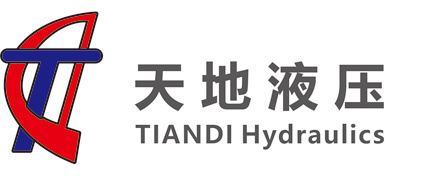GET THE LATEST NEWS FROM THE COMPANY
NEWS CATEGORY
The Essential Guide to Hydraulic Power Unit Pumps: Understanding Their Functionality and Applications
Published:
2025-04-22 13:40
Hydraulic power unit pumps (HPUs) play a vital role in various industrial applications, particularly in the realm of equipment and machinery. These pumps are essential components of hydraulic systems, converting mechanical energy into hydraulic energy, which is then utilized to perform work in a range of applications. Understanding how hydraulic power unit pumps operate can significantly enhance your knowledge of industrial equipment and its functionalities.
At the core of a hydraulic power unit pump is the ability to generate hydraulic pressure. When fluid is pressurized, it can be directed through hoses and valves, enabling the movement of heavy equipment and machinery with ease. This technology is widely used in industries such as construction, manufacturing, and automotive, where precise control of force and movement is paramount.
One of the key features of hydraulic power unit pumps is their ability to provide consistent and reliable power. Unlike pneumatic systems that rely on compressed air, hydraulic systems can deliver a much higher force with less energy consumption. This efficiency results in less wear and tear on machinery, ultimately leading to reduced operational costs for businesses.
Common components of hydraulic power unit pumps include the pump itself, a reservoir for storing hydraulic fluid, and various control mechanisms that regulate fluid flow and pressure. The choice of hydraulic fluid is crucial, as it affects the performance and efficiency of the entire system. Factors such as viscosity, temperature stability, and lubricating properties must be considered when selecting the appropriate hydraulic fluid.
Moreover, hydraulic power unit pumps come in various types, including gear pumps, piston pumps, and vane pumps, each designed for specific applications and operational requirements. Gear pumps are known for their simplicity and reliability, making them suitable for low-pressure applications. In contrast, piston pumps offer higher efficiency and can handle heavier loads, making them ideal for demanding industrial environments.
Safety is also a critical consideration when working with hydraulic systems. Proper maintenance and regular inspections of hydraulic power unit pumps are essential to prevent failures and accidents. Implementing safety protocols and ensuring that operators are well-trained can significantly reduce the risk of hydraulic system malfunctions.
In summary, hydraulic power unit pumps are indispensable tools in the industrial sector, providing the necessary power to operate various equipment and machinery efficiently. Understanding their functionality, applications, and maintenance requirements is essential for professionals in the field. By investing the time to learn about these systems, you can enhance operational efficiency and ensure the longevity of your equipment.
At the core of a hydraulic power unit pump is the ability to generate hydraulic pressure. When fluid is pressurized, it can be directed through hoses and valves, enabling the movement of heavy equipment and machinery with ease. This technology is widely used in industries such as construction, manufacturing, and automotive, where precise control of force and movement is paramount.
One of the key features of hydraulic power unit pumps is their ability to provide consistent and reliable power. Unlike pneumatic systems that rely on compressed air, hydraulic systems can deliver a much higher force with less energy consumption. This efficiency results in less wear and tear on machinery, ultimately leading to reduced operational costs for businesses.
Common components of hydraulic power unit pumps include the pump itself, a reservoir for storing hydraulic fluid, and various control mechanisms that regulate fluid flow and pressure. The choice of hydraulic fluid is crucial, as it affects the performance and efficiency of the entire system. Factors such as viscosity, temperature stability, and lubricating properties must be considered when selecting the appropriate hydraulic fluid.
Moreover, hydraulic power unit pumps come in various types, including gear pumps, piston pumps, and vane pumps, each designed for specific applications and operational requirements. Gear pumps are known for their simplicity and reliability, making them suitable for low-pressure applications. In contrast, piston pumps offer higher efficiency and can handle heavier loads, making them ideal for demanding industrial environments.
Safety is also a critical consideration when working with hydraulic systems. Proper maintenance and regular inspections of hydraulic power unit pumps are essential to prevent failures and accidents. Implementing safety protocols and ensuring that operators are well-trained can significantly reduce the risk of hydraulic system malfunctions.
In summary, hydraulic power unit pumps are indispensable tools in the industrial sector, providing the necessary power to operate various equipment and machinery efficiently. Understanding their functionality, applications, and maintenance requirements is essential for professionals in the field. By investing the time to learn about these systems, you can enhance operational efficiency and ensure the longevity of your equipment.
hydraulic power unit pump
previous page
previous page
Related news

